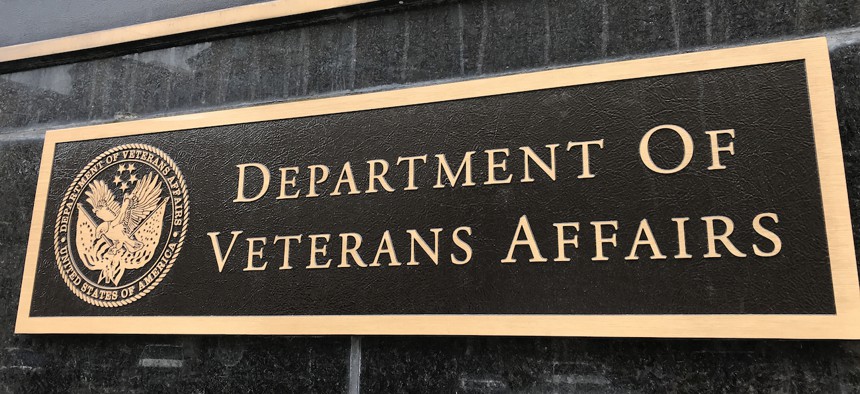
Since its enactment, federal courts have ruled VA must use a higher evidentiary standard to prove its case against employees and cannot apply the law retroactively. Kiyoshi Tanno/Getty Images
VA Will No Longer Use Its Marquee Civil Service Reform Law to Punish Employees
The Biden administration unwinds a key Trump legislative victory, citing a series of setbacks the law has endured.
After a series of setbacks for the measure, the Veterans Affairs Department has informed employees it will no longer use a 2017 law designed to allow it to quickly discipline and fire employees.
VA vowed to continue to hold employees accountable, but going forward it will rely on measures in place prior to the passage of the 2017 VA Accountability and Whistleblower Protection Act. The cessation will begin April 3, according to a memorandum sent earlier this month conveying VA Secretary Denis McDonough’s decision.
The accountability law, which President Trump repeatedly hailed as a signature legislative accomplishment and a key piece of civil service reform, had carried just a fraction of the weight it did when first implemented. Since its enactment, federal courts have ruled VA must use a higher evidentiary standard to prove its case against employees and cannot apply the law retroactively. They also ruled that judges can review whether VA’s selected punishment fit an employee’s alleged misbehavior. A key part of the law as drafted by Congress sought to force the court to accept VA’s selected degree of discipline so long as the evidence supported that misconduct occurred.
The Federal Labor Relations Authority found VA violated its collective bargaining agreement with the American Federation of Government Employees when it eliminated “performance improvement plans” from the pre-disciplinary process. The decision required VA to reinstate all employees fired without first being provided such a plan, a process McDonough told members of Congress on Thursday is currently under negotiation. Most recently, the Merit Systems Protection Board ruled the law did not apply to employees in “hybrid” Title 38 positions, such as audiologists, social workers, nurse assistants, physical therapists and others.
“As a result of these decisions, there are few remaining practical differences between the use of [the accountability law] and traditional Title 5 adverse action authorities,” Gina Grosso, VA’s Human Resources and Administration/Operations, Security, and Preparedness, said in the memo. “Additionally, the complexities of using [the law] have created confusion regarding the application and processing of the relevant adverse action requirements.”
The decision marks the second time in the last decade that Congress tried and failed to speed up hiring at VA. In 2016, the department announced it would no longer use a 2014 law aimed at making it easier to fire career senior executives after it similarly suffered a series of legal setbacks. In both cases, some of the architects of the laws had hoped to see their measures serve as a framework for larger civil service reform that would ease the firing of all federal employees.
McDonough said on Thursday the law was only creating additional obstacles as VA attempted to discipline its malfeasant or poorly performing employees.
“To be honest,” he said, the law, “wasn’t really helping us necessarily manage our workforce as much as it was getting us in front of federal judges and in front of administrative bodies. So we just want to make sure we are exercising the authorities we do have and we can exercise those transparently.”
VA said it will continue to enforce and support any personnel decisions using the accountability law’s authorities that were or are issued prior to April 3. It noted senior executives, whose disciplinary process was reformed by another section of the 2017 law, and probationary employees could still face expedited removal.
Trump and lawmakers on both sides of the aisle had trumpeted the reform as a fundamental step to ease the disciplinary process for misbehaving and poorly performing employees. Employee groups and some lawmakers who originally supported the measure have since criticized VA for abusing its authorities under the new law and disproportionately punishing low-ranking workers.
McDonough stressed that VA will still be able to hold its employees accountable.
“In all cases we do think we do think we have what we need to manage our authorities outside” the 2017 law, he said.
NEXT STORY: No, Your Retirement Investments Aren’t Insured







